#Canadian history
Explore tagged Tumblr posts
Text

TOM THOMSON
'River In Spring'
1916
#canadian#canada#canadian art#canadian painting#tom thomson#art#landscape#painting#paintings#artist#artists#canadian history#history#art history
117 notes
·
View notes
Text
in no particular order, some things to research/know about queer history in canada... which is still the imperial core but a) most usmericans don't know any of this and b) many young queers here know usmerican queer history but not canadian):
How colonialism and the Residential School system worked really hard to destroy 'non-normative' concepts of gender and sexuality in many Indigenous Nations that had existed for thousands of years
Toronto bathhouse raids, aka Operation Soap*** (often called "Canada's Stonewall", except it's time to stop defining it in reference to the us)
Edmonton bathhouse raids
Brunswick Four
Cold War-era anti-gay purges aka Canadian War on Queers. in particular, look up the 'fruit machine')
Montreal riots of 1976, in response to efforts to clean up the city before the Olympics. Raids continued after the Olympics, in particular, the Truxx and Le Mystique bar raids by police in bulletproof vests armed with machine guns, and resulting protests
How the RCMP spent the 50s and 60s keeping tabs on queer men, particularly in Ottawa, surveilling them in their bars and around the city, and exchanged info with the FBI when people crossed the 'border'
Glad Day Bookshop, the oldest surviving queer bookstore in the world
The creation of the term Two-Spirit (niizh manidoowag) in Winnipeg in 1990 by queer Indigenous people, as a pan-Indigenous, non-western term to describe their identity
Pussy Palace Raids
Homosexuality legalised in 1968, decriminalised in 1969 (the day before the Stonewall protest in the US). 'same sex' marriage legalised in 2005
2010–2017 Toronto serial homicides of queer men (who were primarily racialised immigrants or refugees), it is widely believed by the Toronto queer community that the case was badly mishandled by police
2016 Black Lives Matter blockade of Toronto pride parade to protest racism and inclusion of uniformed police floats at pride
i get that americans love their cultural imperialism, but it really does piss me off that june is “international” pride month just because something happened in the united states.
in aotearoa, june isn’t our pride, it’s theirs. marsha p johnson and sylvia rivera are their historical figures, not ours. the phrase that “you owe your rights to Black trans women” is true there, but here we owe our rights to (mostly) Māori historical figures. i have the freedoms i do because of the legacy of an entirely different set of people operating in an entirely different context at entirely different times.
But because of american cultural imperialism, most queer people in Aotearoa don’t even know our own queer history. Carmen Rupe, Ngahuia Te Awekotuku, the Dorian Society, Gillian Laundon, Georgina Beyer, and the Wolfenden Association are some of our queer history. We should know their names! we should know what they did for us! but because of the power of the american imperial machine, we don’t.
our national pride month should be july, the month that the Homosexual Law Reform Act passed in 1986. our two largest cities hold their pride festivals in february and march, respectively. american queer history has very little (or nothing, depending on who you ask) to do with our queer history. anecdotally, from my own queries, queer youth in aotearoa know more about american queer history than our own.
anyway, happy pride, americans. i’m truly sorry that most of you don’t see the negative impact your nation’s culture has on the rest of the world. and to the rest of the world reading this, try searching for your own country and culture’s queer history, don’t accept the american narratives as your own. we deserve our own histories divorced from the cultural hegemony of the USA.
#obviously this is not a complete list#it is meant to be a jumping off point to do research of your own#and also canada is a settler colony and this is stolen land... make sure you also know your own queer history!!#i should do a queer jewish history post at some point... ideas ideas#queer history#lgbtq history#canadian history#queer canadian history#reluctantly canadian#(in a land back way not a 51st state way)#queer#pride#amelgay
42K notes
·
View notes
Text
youtube
The 1969 American Stonewall Riots remain a defining moment in global 2SLGBTQIA+ history. But did you know that during the same year, the result of one Albertan's case would lead to the eventual decriminalization of homosexuality in Canada? Join Kels as she interviews Harper-Hugo Darling, the founder of Making Queer History to learn more about Everett Klippert, the last person in Canada to be criminally charged with "gross indecency."
593 notes
·
View notes
Text
The University of Alberta is offering a new free online course to highlight the history and accomplishments of Black Canadians.
Called Black Canadians: History, Presence, and Anti-Racist Futures,the course will explore topics like systemic racism and unconscious racial bias in Canadian institutions.
The course became available Friday.
Course director Andy Knight, a political scientist at the U of A and provost fellow in Black excellence and leadership, spoke with Radio Active host Jessica Ng about the four-module course. [...]
Continue Reading for interview.
Tagging: @politicsofcanada, @vague-humanoid
2K notes
·
View notes
Text

#Jimmy Carter#Chalk River#nuclear reactor#NRX#1952#U.S. Navy#radiation#nuclear accident#Canadian history#reactor meltdown
263 notes
·
View notes
Text
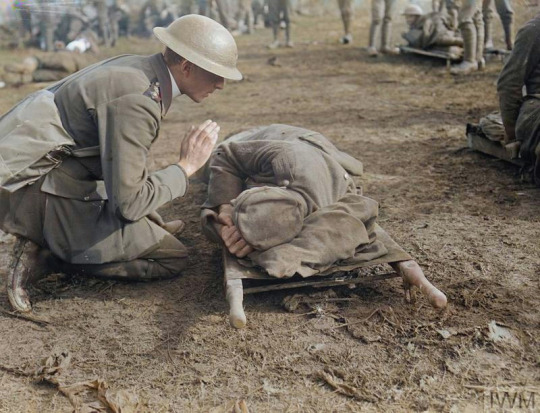
A British padre saying a prayer over a dying German, near Epehy - France, 18th September 1918.
#historical photos#the first world war#world war 1#world war one#1917#wwi#the great war#history#ww1#canadian history#france#great war#military history#british army#ww1 poetry#ww1 history#ww1 fiction#ww1 art
543 notes
·
View notes
Text



Peter Puck Hockey Candies
#peter puck#hockey#candy#canadian history#hockey night in canada#ronnie schell#brian mcfarlane#hanna barbera
94 notes
·
View notes
Text
Song of the Day
"Call of the moose" Willy Mitchell, 1980 As you might know, September 30th is Truth and Reconciliation day (more commonly known as Orange Shirt Day), a national day in Canada dedicated to spreading awareness about the legacy of Residential schools on Indigenous people. Instead of just focusing on a song, I also wanted to briefly talk about the history of the sixties scoop and its influence on Indigenous American music and activism.
The process of Residential schooling in Canada existed well before the '60s, but the new processes of the sixties scoop began in 1951. It was a process where the provincial government had the power to take Indigenous children from their homes and communities and put them into the child welfare system. Despite the closing of residential schools, more and more children were being taken away from their families and adopted into middle-class white ones.
Even though Indigenous communities only made up a tiny portion of the total population, 40-70% of the children in these programs would be Aboriginal. In total, 20,000 children would be victims of these policies through the 60s and 70s.
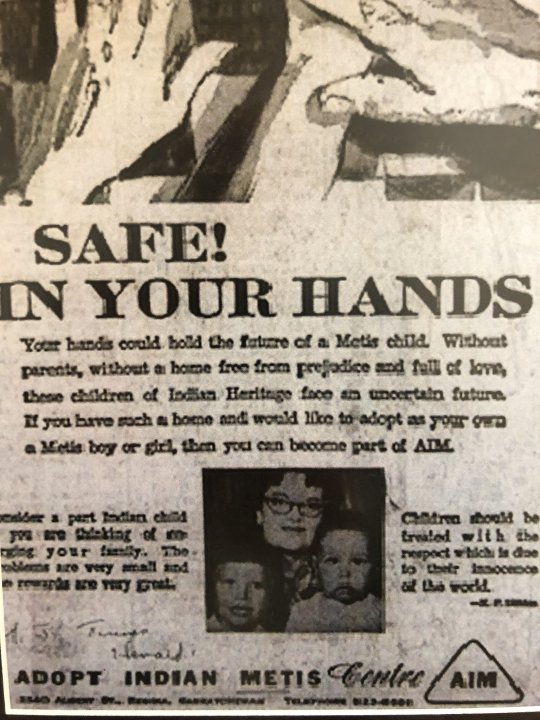
These adoptions would have disastrous effects on their victims. Not only were sexual and physical abuse common problems but the victims were forcibly stripped of their culture and taught to hate themselves. The community panel report on the sixties scoop writes:
"The homes in which our children are placed ranged from those of caring, well-intentioned individuals, to places of slave labour and physical, emotional and sexual abuse. The violent effects of the most negative of these homes are tragic for its victims. Even the best of these homes are not healthy places for our children. Anglo-Canadian foster parents are not culturally equipped to create an environment in which a positive Aboriginal self-image can develop. In many cases, our children are taught to demean those things about themselves that are Aboriginal. Meanwhile, they are expected to emulate normal child development by imitating the role model behavior of their Anglo-Canadian foster or adoptive parents."
and to this day indigenous children in Canada are still disproportionately represented in foster care. Despite being 5% of the Total Canadian population, Indigenous children make up 53.8% of all children in foster care.
I would like to say that the one good thing that came out of this gruesome and horrible practice of state-sponsored child relocation was that there was a birth of culture from protest music, but there wasn't. In fact, Indigenous music has a long history of being erased and whitewashed from folk history.
From Buffy Saint-Marie pretending to be Indigenous to the systematic denial of first nations people from the Canadian mainstream music scene, the talented artists of the time were forcibly erased.
Which is why this album featuring Willy Mitchell is so important.

Willy Mitchell and The Desert River Band
This Album was compiled of incredibly rare, unheard folk and rock music of North American indigenous music in the 60s-80s. It is truly, a of a kind historical artifact and a testimony to the importance of archival work to combat cultural genocide. Please give the entire thing a listen if you have time. Call of the Moose is my favorite song on the album, written and performed by Willy Mitchell in the 80s. His Most interesting song might be 'Big Policeman' though, written about his experience of getting shot in the head by the police. He talks about it here:
"He comes there and as soon as I took off running, he had my two friends right there — he could have taken them. They stopped right there on the sidewalk. They watched him shootin’ at me. He missed me twice, and when I got to the tree line, he was on the edge of the road, at the snow bank. That’s where he fell, and the gun went off. But that was it — he took the gun out. He should never have taken that gun out. I spoke to many policemen. And judges, too. I spoke with lawyers about that. They all agreed. He wasn’t supposed to touch that gun. So why did I only get five hundred dollars for that? "
These problems talked about here, forced displacement, cultural assimilation, police violence, child exploitation, and erasure of these crimes, still exist in Canada. And so long as they still exist, it is imperative to keep talking about them. Never let the settler colonial government have peace; never let anyone be comfortable not remembering the depth of exploitation.
Every Child Matters
#orange shirt day#truth and reconciliation#first nations#song of the day#indigenous folk#canadian history#sixties scoop#indigenous music#folk#folk revival#folk music#folk rock#60s#willy mitchell#song history#60s country#80s music#protest folk#music history#residential schools#american folk#american folk revival#Spotify
113 notes
·
View notes
Text

Lion and Sword II by Parviz Tanavoli. Iranian and Canadian. 1975 CE.
Los Angeles County Museum of Art.
#Parviz tanavoli#art#culture#history#modern history#middle eastern history#iran#Iranian#iranian history#Canada#canadian history#Canadian#Los Angeles county museum of art#lions#lion#animals in art#1970s
51 notes
·
View notes
Text

That's right. It's our slogan now, motherfuckers.
Always think twice before fucking with a nation of queer lumberjacks.
Currently 15% off with promo code and the purchase of two items from my shop.
#canada#canadian values#canadian artist#canadian#queer artist#trans rights#queer community#nonbinary artist#politics#canadian history#canadian news#lgbtq community#nonbinary pride#canadian politics#quebec#lumberjack#bears#antiracism#antifascism#antifascismo#civil rights#united#workwear#winter#pine tree forest#spruce trees#mountains#strong#freedom#democracy
68 notes
·
View notes
Note
How do Canadian schools teach about indigenous Canadian history and culture? -a curious USAmerican
In my experience we learned about colonization at the same time as we learned about the formation of Canada. At first it was "European settlers came and pushed out the indigenous population", then in the higher grades we learned more about the how and the why.
For example, how carts full of men with rifles would ride around shooting Buffalo, then leaving the meat on the ground to rot, because "a dead Buffalo is a dead indian", which was so fanatical it almost wiped out wild Buffalo entirely
Also how Canadian settlers were lured in with beautiful hand-painted advertisements for cheap, beautiful, fertile land that was unpopulated and perfect, if only you'd sail over with your entire family and a pocket full of seeds- only to be met with scared, confused, and angry lawful inhabitants already run out of ten other places, and frigid winters, and rocky, forested, undeveloped dirt.
also, smallpox blankets, where "gifts" of blankets infected with smallpox were intentionally given out
And treaty violations- Either ignoring written agreements entirely, or buying them out at insanely low prices and lying about the value, or trading for farming equipment that they couldn't use because they weren't farmers.
Then in the first world war, where they told indigenous peoples here that they'd be granted Canadian citizenship if they enlisted
To Residential schools, which was straight up stealing kids for slavery, indoctrination, and medical experiments
But we also covered the building of the Canadian Railway in which Chinese immigrants were lowered into ravines with dynamite to blow out paths through the mountain for pennies on the dollar
And the Alberta Sterilization Act, where it was lawful and routine procedure to sterilize women of colour and neurodivergent people without their awareness or consent after giving birth or undergoing unrelated surgeries
But I'm rambling.
We kind of learned Aboriginal history at the same time as everything else? Like. This is when Canada was made, and this is how it was done. Now we'll read a book about someone who lived through it, and we'll write a book report. And now a documentary, and now a paper about the documentary. Onto the next unit.
And starting I think in grade 10 our English track was split between English and Aboriginals English, where you could choose to do the standard curriculum or do the same basic knowledge stuff with a focus on Aboriginal perspectives and literature. (I did that one, we read Three Day's Road and Diary Of A Part-Time Indian, and a few other titles I don't remember.)
There was also a lunch room for the Aboriginal Culture Studies where Aboriginal kids could hang out at lunch time if they wanted, full of art and projects and stuff. They'd play music or videos sometimes, that was cool
And one elective I took (not mandatory cirriculum) was a Kwakiutl course for basic Kwakwakaʼwakw language. Greetings, counting to a hundred, learning the modified alphabet, animals, etc. Still comes in handy sometimes at large gatherings cause they usually start with a land recognition thanking whoever's land we're on, with a few thanks and welcomes in their language.
And like- when I was in the US it was so weird, cause here we have Totem poles and longhouses and murals all over and yall... don't? Like there is a very distinct lack of Aboriginal art in your public spaces, at least in the areas I've been
My ex-stepfather, who was American, brought his son out once, and he was so excited to "see real indians" and was legitimately shocked to learn that there weren't many teepees to be found on the northwest coast, and was even *more* shocked when we told him that you have Aboriginal people back home too, bud. Your Aboriginal people are also named "Mike" snd "Vicky" and work as assistant manager at best buy.
If you'd ask me, I'd say that the primary difference is that USAmerica (from what I've seen, and ALSO in entirely too much of Canada) treats our European and Aboriginal conflicts as history, something that's tragic but over, like the extinction of the mammoths, instead of like. An ongoing thing involving people who are alive and numerous and right fucking here
But at the end of the day, I'm white, and there are plenty of actual Aboriginal people who are speaking out and saying much more meaningful things than I can
So I'm just gonna pass on a quote from my Stepmum, who's Cree, that's stuck with me since she said it:
"You see how they treat Mexicans in America? That's how they treat us here. Indians are the Mexicans of Canada."
#Canadian history#Canadian education#Medical tw#Medical malpractice#Human rights#Genocide tw#Residential school tw#Child abuse tw#Slavery tw#Current events#Canadian Education#Aboriginal history
581 notes
·
View notes
Text
Okay wait, did I imagine this and assume it was a fact, or was this a thing?
I thought Luthen Rael's name was a deliberate homage to Louis Riel. The Metis Canadian resistance leader.
They have a lot spiritually in common. Louis Riel is, of course, famously also a badass who was murdered by an oppressive, imperialist government.


#andor#andor star wars#andor spoilers#star wars andor#cassian andor#andor season 2#canadian#canada#canada politics#canadian politics#french canada#canadian history#star wars
41 notes
·
View notes
Text
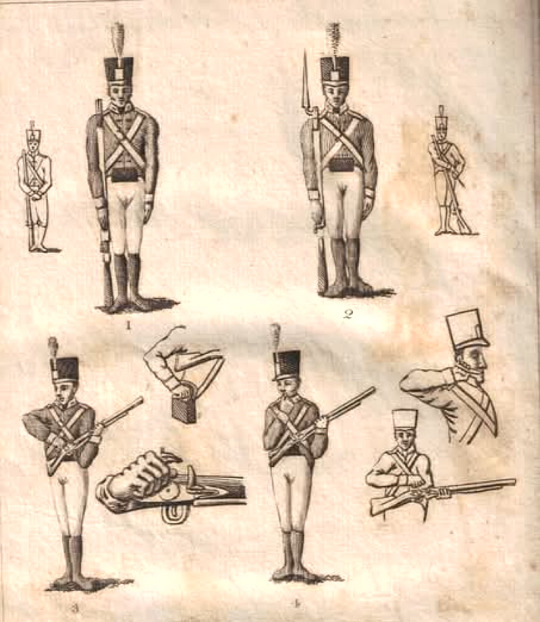








#war of 1812#polls#military history#us history#canadian history#napoleonic#forts#you had better not vote for that last option without sharing the fort name
48 notes
·
View notes
Text

A woman moving to another village takes with her the bones of her dead son, decorated with marigolds, the native mourning flower, Balkan Front, June 1916. Photo by Ariel Varges (1890-1972)
#ww1#wwi#great war#The Great War#The First World War#photography#historical photography#history#historical photos#British history#military history#canadian history#1918#1917#1916#siberia
2K notes
·
View notes
Text
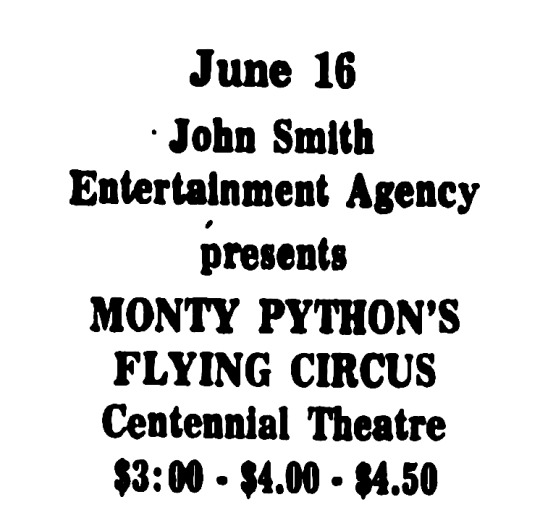




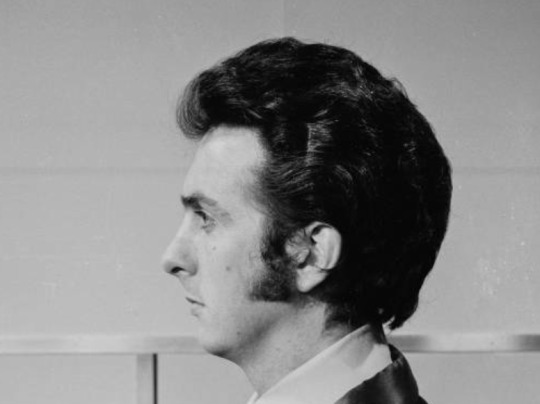
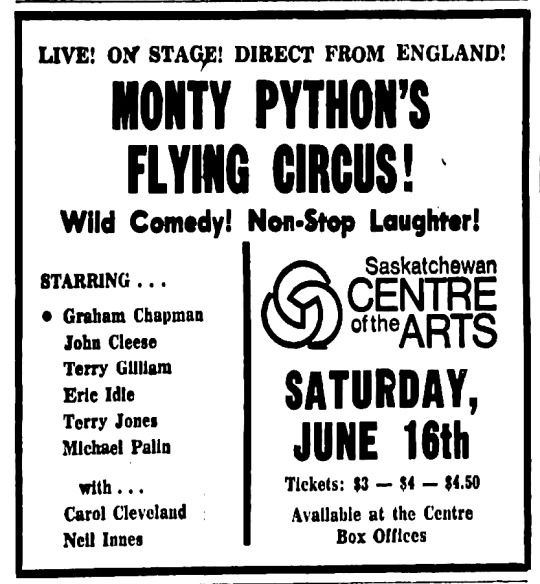






June 1973.
Monty Python played four sold out shows in Toronto during their first Canadian tour, but they sold so few tickets in Saskatoon that they had to cancel the show.
#monty python#saskatoon#saskatchewan#history of british comedy#canada#canadian history#history of canadian comedy#john cleese#eric idle
40 notes
·
View notes